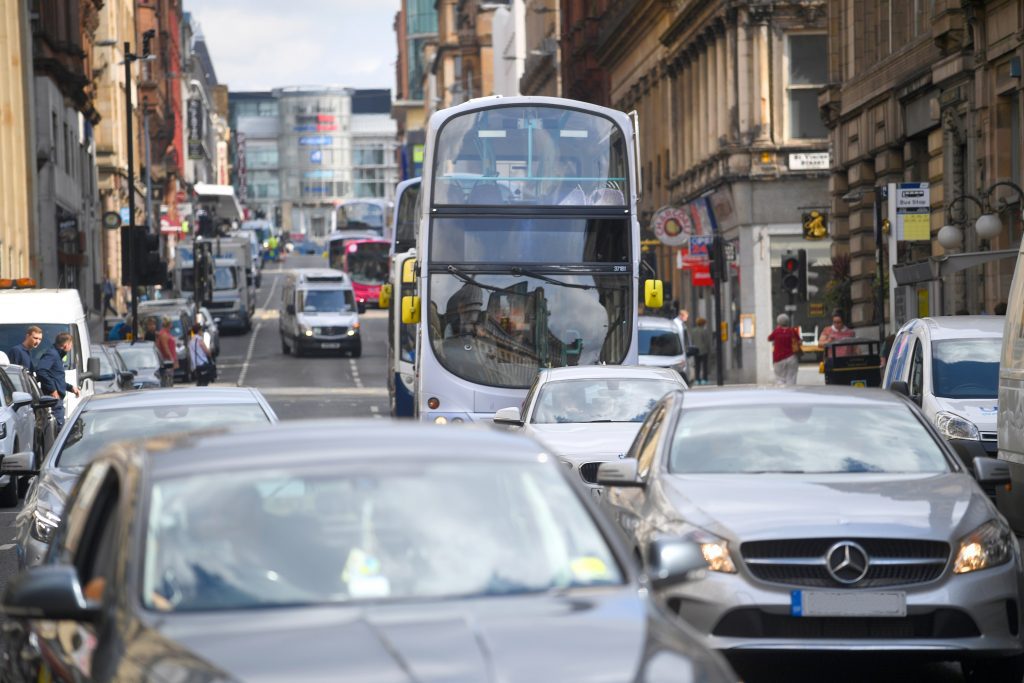Glasgow Bus Partnership Awarded £3.655m to Deliver and Develop Bus Priority Measures Across Glasgow City Region

Approval was granted at Glasgow City Council’s City Administration Committee last week (19 August 2021) to accept an award of up to £3.655m from Transport Scotland’s Bus Partnership Fund for bus priority interventions within Glasgow City Region.
The Bus Partnership Fund forms part of the Scottish Government’s response to the climate emergency, with funding available over the next five years to support local authorities in partnership with bus operators to tackle the negative impacts of congestion – making bus journeys quicker and more reliable, and so encourage greater patronage.
This first round award – made to the Glasgow Bus Partnership following a Glasgow City Council led submission on their behalf, backs ‘quick win’ projects in this financial year that supports early scheme delivery. This will see £2m made available for bus priority interventions in Paisley town centre, and £275,000 for infrastructure improvements on Hope Street and Howard Street in Glasgow city centre.
The award also includes £1.38m to progress detailed business cases for five key bus corridors across Glasgow, and to fund work around a wider strategy. The corridors on Paisley Road West, Maryhill Road, Dumbarton Road, Pollokshaws Road and Great Western Road will all be reviewed holistically, with consideration of how changes can help to deliver on the council’s wider policies and aspirations, including the emerging Active Travel Strategy. Proposals for these corridors will support both sustainable transport and place-making goals, whilst also helping to reduce dependency on private car use.
Cllr Anna Richardson, Glasgow City Council City Convener for Sustainability and Carbon Reduction said: “Bus priority measures play an essential role in enhancing the attractiveness of public transport and discouraging private car use. In both the long and short term, these interventions offer positive environmental benefits and present an opportunity to build upon more sustainable travel behaviours by promoting bus as an appealing mode of transport, through increased service reliability and reduced journey times.
“All of these interventions are built upon successful partnership working and will be of benefit to current and potential bus passengers.”
Development of the Glasgow Bus Partnership’s bid brought together all Glasgow City Region local authorities, bus operators, Strathclyde Partnership for Transport (SPT) and bus passenger representative groups. This collective approach demonstrates the determination of Glasgow Bus Partnership to promote bus as a prime mode of passenger transport; providing safe, affordable, enjoyable connections and reducing road congestion and air pollution. In addition to the delivery of quick win projects and the furtherance of proposals expected to improve bus journey times, other work in support of achieving Bus Service Improvement Partnership status is also underway, to highlight the extent to which a collaborative, partnership approach can leverage other bus service improvements for the wider community.
